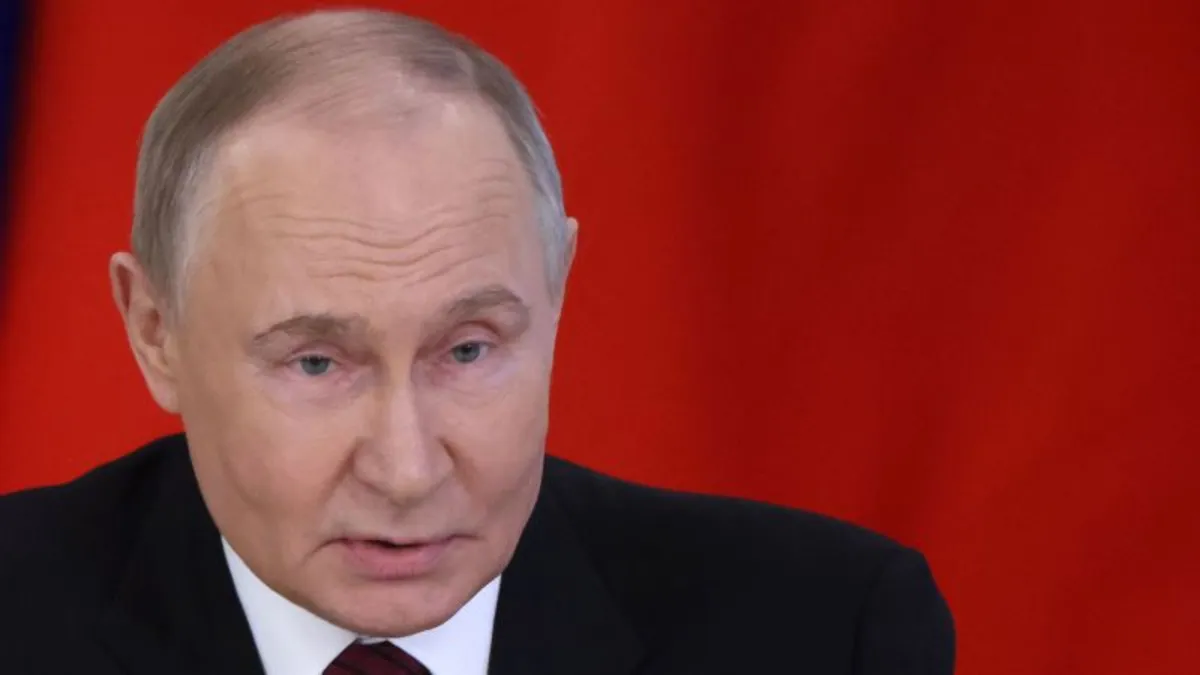
In a significant development, Russian President Vladimir Putin has proposed to initiate “direct talks” with Ukraine on Thursday, May 15, in Istanbul. This offer comes amidst ongoing efforts by European leaders and the United States to persuade Moscow to agree to a 30-day ceasefire aimed at resolving the three-year-long conflict. In a rare late-night televised address, Putin stated, “We would like to start immediately, already next Thursday, in Istanbul, where they were held before and where they were interrupted.”
Putin emphasized the need for these negotiations to occur “without any preconditions.” He expressed Russia's determination for serious negotiations with Ukraine, aiming to “eliminate the root causes of the conflict” and establish a long-term, durable peace.
This proposal from Putin follows a meeting in Kyiv where leaders from Germany, France, the United Kingdom, and Poland stood in solidarity with Ukrainian President Volodymyr Zelensky. They collectively urged Putin to agree to a 30-day ceasefire starting Monday, warning that failure to do so could result in “massive sanctions,” as stated by French President Emmanuel Macron. The call for a ceasefire has gained the backing of the White House, following a joint phone call with US President Donald Trump.
Shortly after this call for a ceasefire, Kremlin spokesperson Dmitry Peskov remarked that Russia is “resistant to any kind of pressure.” He noted, “Europe is actually confronting us very openly,” while adding that although Putin supports the idea of a ceasefire “in general,” there are many questions regarding the recent proposal that still require clarification. Peskov did not elaborate on these specific questions.
Direct talks between Ukraine and Russia have not occurred since the early stages of Moscow’s invasion in 2022. Putin mentioned on Sunday his intention to discuss the possibility of these talks with Turkish President Recep Tayyip Erdogan.
For the past two months, Ukraine has consistently advocated for an immediate 30-day ceasefire, a stance also supported by key European allies and President Trump. Russia has yet to commit to this ceasefire, expressing general support but insisting that there are “nuances” that need to be addressed first.
In his remarks, Putin denied that Moscow has rejected dialogue with Kyiv, asserting that “the decision now lies with the Ukrainian authorities.” He indicated that there might be opportunities during these proposed talks to arrange a new truce or ceasefire, calling the discussions “a first step to a long-lasting stable peace” rather than a prelude to renewed armed conflict.
Putin has frequently highlighted the necessity of addressing what he refers to as the “root causes” of the conflict, which he implies includes the eastward expansion of NATO. In a post on Truth Social, Trump warned that “if the ceasefire is not respected, the US and its partners will impose further sanctions,” indicating his frustration with Russia's delays. Ending the war in Ukraine has been a priority for Trump, who has invested considerable effort in attempting to persuade Putin to cooperate.
Trump's special envoy, Steve Witkoff, has visited Russia four times to meet with Putin, and there have been several high-level meetings between US and Russian officials since Trump returned to the White House in January. However, despite offering previously unthinkable concessions, the Trump administration has struggled to secure Russia's agreement to the limited ceasefire proposal, which is intended as a stepping stone towards a permanent truce.
Last month, US Secretary of State Marco Rubio threatened that the US would withdraw from talks if no progress was made. Currently, the US is collaborating with Ukraine’s European allies to increase pressure on Russia. Peskov acknowledged Russia's gratitude for Washington’s mediation efforts but insisted that “it’s quite useless to try to press on us.”
This story will continue to evolve as new information emerges regarding the proposed negotiations and the international response to the ongoing conflict.